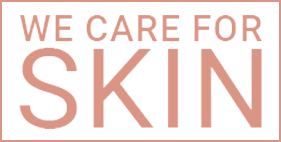Aging is an inevitable phenomenon in humans. The effects of aging can be extensive, from degenerative diseases to age-related conditions. The consequences of aging are mainly observed in the skin with the increase in the appearance of wrinkles, hyperpigmentation, sagging, and dullness.
The skin is the largest organ in our body and our literal defense from the outside world. It is constantly exposed to external factors that can damage it. In addition, internal factors can also contribute to accelerating the skin aging process.
The visible manifestations of skin aging go beyond being cosmetically undesirable for people suffering from such problems. Loss of the skin's structural integrity and decrease in its ability to heal properly can be life-threatening in certain conditions. Hence, the search for products that slow down the aging process and erase the physical indications of skin aging is an ongoing pursuit.
Signs and Causes of Skin Aging
Wrinkles around the mouth and on the forehead are hallmarks of skin aging. Wrinkles and fine lines are brought about by several factors that make the skin lose its elasticity. One of the main culprits is the decrease of fibroblasts as humans age; these fibroblasts are cells that play a crucial role in the production of collagen in the body. This reduction in collagen production affects the skin's structural integrity, making it loose and saggy. It also affects the skin's ability to retain moisture, often causing the skin to appear dry and dull.
Sun exposure also contributes to this degenerative process. UV rays trigger matrix metalloproteinases in the dermis, which along with free radicals, initiate the oxidative process and cause DNA mutation. This cascade of events further causes the breakdown of collagen. Collagen plays an essential role in maintaining skin integrity and wound healing, making its destruction detrimental to overall skin health.
Other external factors such as pollutants, mechanical stress, and personal lifestyle accelerate skin aging. Intrinsic factors such as genetic and hormonal changes as we age, and genetic predisposition also play a role in the process. However, their exact mechanisms are yet to be known.
Preventing Skin Aging
Skin aging is a complex, multi-factorial, and natural process. Although unavoidable, this process can be slowed down, and with the advent of new technologies - could even be reversed. Below are some tips on how to erase fine lines on your forehead and say goodbye to dry, dull, and saggy skin overall.
-
Avoid prolonged sun exposure
It's no question by now that sun exposure causes a myriad of skin problems. Being a tropical country, the Philippines is no stranger to having days where the sun is scorching hot. If possible, avoid going out when the sun is at its peak. Applying sunscreen with an SPF of at least 30 is also recommended by dermatologists.
-
Hydration is the key
The skin constantly loses moisture due to sweating, heat, wind, and various other reasons. Staying hydrated is crucial to replacing all this lost moisture in the body and the skin. Proper hydration also ensures that the body, along with its natural processes, is at its optimal state.
Proper hydration can also mean applying lotion or moisturizer when your skin needs it. These products have been shown to help maintain the skin's protective barrier, fill in cracks and gaps in the epidermis, and attract water molecules from the air to help hydrate the skin.
-
Maintain a healthy lifestyle
As mentioned above, one's lifestyle can significantly impact the skin's overall health. Diet is probably the most critical aspect of this. Having a balanced diet is not only beneficial to your skin health but also your overall health. High-fat and high-sugar diets have been shown to accelerate skin aging by causing oxidative stress and inflammatory damage. Avoiding these foods is impossible, but with moderation, you can still prevent their adverse effects.
Having enough sleep is just as important as well. Lack of sleep contributes to the initiation of oxidative stress in the body. Vices such as cigarette smoking can also do a lot of harm and speed up the aging process of the skin.
-
Friction and abrasion are your enemies
Mechanical stress like friction and abrasion plays a more significant role in skin aging than you might have thought. Wearing tight clothes has been proven to contribute to the darkening of some parts of the body due to constant friction between the skin and the clothes.
Similarly, abrasive products such as exfoliating scrubs might be doing more harm than good to your skin. Abrasives create microscopic cuts in the skin, which could trigger an inflammatory response, disrupt the skin's natural barrier, and accelerate skin aging.
-
Supplements can help
The quest to achieve healthy skin has gone beyond the usual realm of topical cosmetics. Today, there are several supplements that you can take to help your skin slow down its natural aging.
Given the vital role of collagen in skin aging, it's no surprise that it is one of the most widely used supplements when it comes to skin aging. Collagen peptides have been extensively studied for their efficacy and safety, whether applied locally to the skin or taken as a supplement.
However, not all collagen supplements are created equally. Collagen has different types, different sources, and different effects on the body. Verisol® is a patented collagen peptide that has shown promising results.
A 2013 randomized controlled trial (RCTs provide the most reliable evidence) showed that an intake of Verisol 2.5 to 5 grams daily for eight weeks resulted in significantly higher skin elasticity. Similarly, a 2014 RCT showed that Verisol® 2.5 grams daily for 4 to 8 weeks significantly reduced the volume of eye wrinkles in the subjects.
A quick search in the drug databases available in the Philippines only showed the brand Gloww Collagen as an FDA-approved collagen supplement that contains Verisol®.
References
-
Franco, A. C., Aveleira, C., & Cavadas, C. (2022). Skin senescence: mechanisms and impact on whole-body aging. Trends in Molecular Medicine, 28(2), 97–109. https://doi.org/10.1016/j.molmed.2021.12.003
-
MIMS Philippines. (2022). Verisol. Retrieved https://www.mims.com/philippines/drug/search?q=Verisol
-
Proksch, E., Schunck, M., Zague, V., Segger, D., Degwert, J., & Oesser, S. (2014). Oral intake of specific bioactive collagen peptides reduces skin wrinkles and increases dermal matrix synthesis. Skin Pharmacology and Physiology, 27(3), 113–119. https://doi.org/10.1159/000355523
-
Proksch, E., Segger, D., Degwert, J., Schunck, M., Zague, V., & Oesser, S. (2014). Oral supplementation of specific collagen peptides has beneficial effects on human skin physiology: a double-blind, placebo-controlled study. Skin Pharmacology and Physiology, 27(1), 47–55. https://doi.org/10.1159/000351376
-
Ramos-e-Silva, M., Celem, L. R., Ramos-e-Silva, S., & Fucci-da-Costa, A. P. (2013). Anti-aging cosmetics: facts and controversies. Clinics in Dermatology, 31(6), 750–758. https://doi.org/10.1016/j.clindermatol.2013.05.013
-
Sharma, A., Kuhad, A., & Bhandari, R. (2022). Novel nanotechnological approaches for treatment of skin-aging. Journal of Tissue Viability, 31(3), 374–386. https://doi.org/10.1016/j.jtv.2022.04.010
-
Walker, M. (2022). Human skin through the ages. International Journal of Pharmaceutics, 622, 121850. https://doi.org/10.1016/j.ijpharm.2022.121850
-
Zhao, X., Zhang, X., & Liu, D. (2021). Collagen peptides and the related synthetic peptides: A review on improving skin health. Journal of Functional Foods, 86, 104680. https://doi.org/10.1016/j.jff.2021.104680



